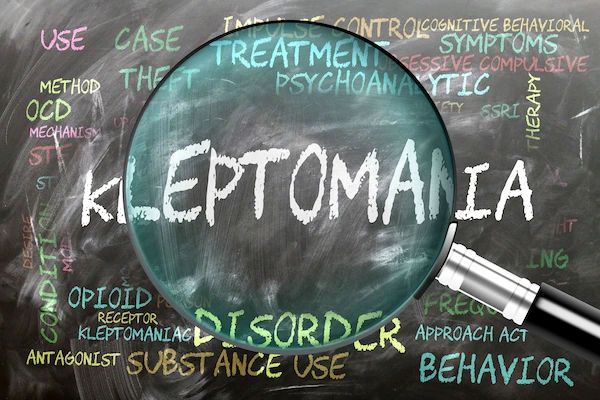Recognising And Overcoming Depression
Learn how to recognise the signs of depression and explore effective strategies for overcoming it. Get expert tips, coping mechanisms, and support options to reclaim your mental health today.

Written by Dr.Sonia Bhatt
Last updated on 3rd Jul, 2025

Introduction
Depression is a common mental health condition that affects millions of people worldwide. However, understanding depression, recognising its symptoms, and knowing how to seek help can empower individuals to manage their mental health effectively. In this blog, we will explore the various aspects of depression, including its definition, symptoms, impact on daily life, treatment options, and strategies for coping and recovery.
Understanding Depression
Depression is more than just feeling sad or down for a few days. It is a severe mood disorder that can affect how a person thinks, feels, and behaves. The World Health Organisation (WHO) defines depression as a common mental disorder characterised by persistent sadness, loss of interest or pleasure in activities, and a range of emotional and physical problems. It can interfere with daily life, work, and relationships.
There are different types of depression, including major depressive disorder, persistent depressive disorder (dysthymia), and bipolar disorder. Each type has its symptoms and severity, but all can significantly impact a person's quality of life.
Common Causes and Risk Factors
Depression can arise from a combination of factors. Some common causes and risk factors include:
Genetics: A family history of depression can increase the likelihood of developing the condition.
Biological Factors: Changes in brain chemistry and hormone levels can contribute to depression.
Environmental Factors: Stressful life events, such as the loss of a loved one, divorce, or job loss, can trigger depressive episodes.
Trauma: Experiencing trauma or abuse can lead to long-term mental health issues, including depression.
Chronic Illness: Living with a chronic illness or pain can increase the risk of developing depression.
Substance Abuse: Alcohol and drug misuse can both cause and exacerbate depressive symptoms.
Understanding these factors can help individuals recognise risk and seek help when needed.
Identifying Symptoms of Depression
Recognising the symptoms of depression is crucial for early intervention and treatment. Symptoms can vary widely from person to person, but they generally fall into three categories: emotional, physical, and behavioural.
1. Emotional Symptoms
Emotional symptoms of depression may include:
Persistent Sadness: A constant sadness or emptiness that doesn’t seem to lift.
Hopelessness: A sense of despair and belief that things will never improve.
Irritability: Increased frustration or anger over small matters.
Loss of Interest: A lack of interest or pleasure in once enjoyable activities, such as hobbies or socialising.
2. Physical Symptoms
Physical symptoms can also be significant and may include:
Changes in Appetite: Eating too much or too little leads to weight gain or loss.
Fatigue: A constant feeling of tiredness or lack of energy, even after adequate rest.
Sleep Disturbances: Insomnia (difficulty sleeping) or hypersomnia (sleeping too much).
Aches and Pains: Unexplained physical symptoms, such as headaches or stomach aches.
3. Behavioural Changes
Behavioural changes can be noticeable and may include:
Withdrawal: Avoiding social interactions and isolating oneself from friends and family.
Neglecting Responsibilities: Difficulty managing daily tasks, such as work or household chores.
Decreased Performance: A decline in work or academic performance due to lack of concentration or motivation.
Recognising these symptoms is the first step towards seeking help and support.
Impact of Depression on Daily Life
Depression can have a profound impact on various aspects of life, including personal relationships and work.
Effects on Personal Relationships: Depression can strain relationships with family and friends. Those suffering from depression may withdraw from loved ones, leading to feelings of isolation and loneliness. Open communication about feelings and seeking support can help bridge this gap.
Work and Productivity Challenges: In the workplace, depression can lead to decreased productivity, absenteeism, and difficulty concentrating. Individuals may struggle to meet deadlines or perform once-manageable tasks. This can create a cycle of stress and further exacerbate depressive symptoms. Individuals need to communicate with their employers or seek accommodations if required.
Diagnosing Depression
It is crucial to seek professional help if symptoms persist for more than two weeks, interfere with daily life, or if there are thoughts of self-harm or suicide. A mental health professional can provide a comprehensive evaluation and diagnosis, essential for developing an effective treatment plan. Remember, reaching out for help is a sign of strength, not weakness.
Treatment Options for Depression
There are various treatment options available for depression, and what works for one person may not work for another. It is essential to find a treatment plan that suits your individual needs.
1. Medication and Antidepressants
Antidepressants are commonly prescribed to help alleviate symptoms of depression. These medications work by balancing chemicals in the brain that affect mood. Selective serotonin reuptake inhibitors (SSRIs) and serotonin-norepinephrine reuptake inhibitors (SNRIs) are two types of antidepressants that are often effective. It is essential to consult with a healthcare professional to determine the best medication and dosage for your situation.
2. Psychotherapy Approaches
Psychotherapy, or talk therapy, can be an effective treatment for depression. Various approaches can be beneficial, including:
Cognitive Behavioural Therapy (CBT): This therapy focuses on identifying and changing negative thought patterns and behaviours that contribute to depression.
Interpersonal Therapy (IPT): IPT helps individuals improve their relationships and communication skills, which can alleviate symptoms of depression.
Dialectical Behaviour Therapy (DBT): Originally developed for borderline personality disorder, DBT is effective for managing emotions and improving interpersonal effectiveness.
3. Alternative Therapies
In addition to traditional treatments, alternative therapies may provide additional support for managing depression. These can include acupuncture, yoga, and herbal supplements. However, discussing these options with a healthcare provider to ensure they are safe and appropriate for your situation is essential.
Lifestyle Changes to Manage Depression
Making specific lifestyle changes can significantly impact mental health and help manage depression.
Importance of Regular Exercise: Engaging in regular physical activity can boost mood and reduce symptoms of depression. Exercise releases endorphins, which are natural mood lifters. Aim for at least 30 minutes of moderate exercise most days of the week. This can include walking, cycling, swimming, or any activity you enjoy.
Role of Nutrition and Diet: A balanced diet plays a crucial role in mental health. Consuming fruits, vegetables, whole grains, and lean proteins can support overall well-being. Certain nutrients, such as omega-3 fatty acids in fish and B vitamins in whole grains, are particularly beneficial for brain health. Staying hydrated is also essential.
Sleep and Relaxation Techniques: Adequate sleep is vital for mental health. Establishing a regular sleep routine can improve sleep quality. Relaxation techniques, such as deep breathing, meditation, and progressive muscle relaxation, can help reduce stress and promote better sleep.
Long-term Management and Prevention
Managing depression is an ongoing process that requires commitment and self-awareness. Developing strategies for long-term management can help prevent relapse and maintain mental wellness.
Strategies for Preventing Relapse: Identifying triggers and developing coping strategies can be crucial in preventing relapse. Regularly reviewing and adjusting treatment plans with a healthcare professional can also help. Engaging in self-care practices, such as exercise, healthy eating, and maintaining a support network, can further support mental health.
Maintaining Mental Wellness over Time: Regular check-ins with oneself, setting realistic goals, and celebrating small achievements can foster a positive mindset. It is also important to continue seeking support from friends, family, or professionals as needed.
Conclusion
Recognising and overcoming depression is a journey that requires understanding, support, and effective coping strategies. By educating ourselves about depression, identifying symptoms, and seeking help, we can empower ourselves and others to manage mental health effectively.
Consult Top Psychiatrists
Consult Top Psychiatrists

Dr. Pratik Kumar
Psychiatrist
10 Years • MBBS,DNB-PSYCHIATRY
North West Delhi
DELHI GLOBAL MIND CLINIC, North West Delhi
(75+ Patients)

Dr. B. S. Kumawat
Psychiatrist
5 Years • MBBS, MD (Psychiatry) - NIMHANS
Sikar
Dr Bhawani Shankar, Sikar
(50+ Patients)

Dr. Ankit Halder
Psychiatrist
7 Years • MBBS,MD(PSYCHIATRY)
Kolkata
Serenity Mindcare (A Neuropsychiatry Clinic), Kolkata

Dr. Hasanthi Thumurothu
Psychiatrist
15 Years • MBBS, MD
Telangana
Veda speciality clinics, Telangana

Dr. Sanjoy Roy
Psychiatrist
7 Years • MBBS, DPM (CIP Ranchi)
Kolkata
The Hope and Care clinic, Kolkata




